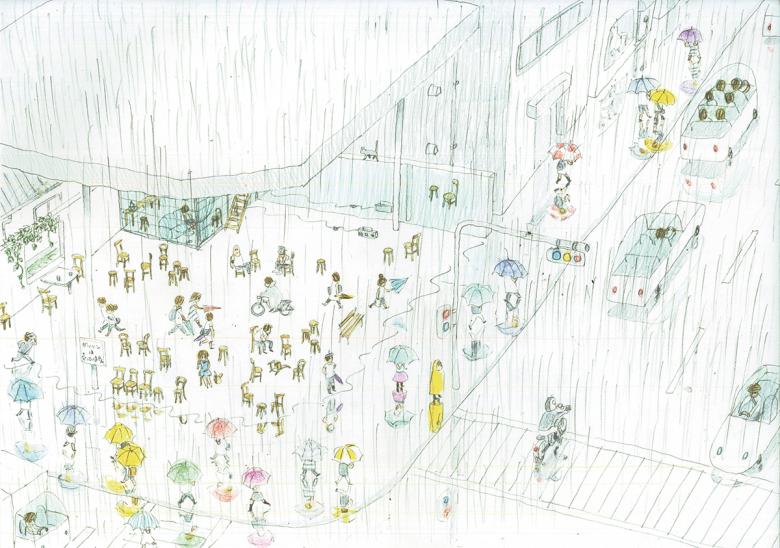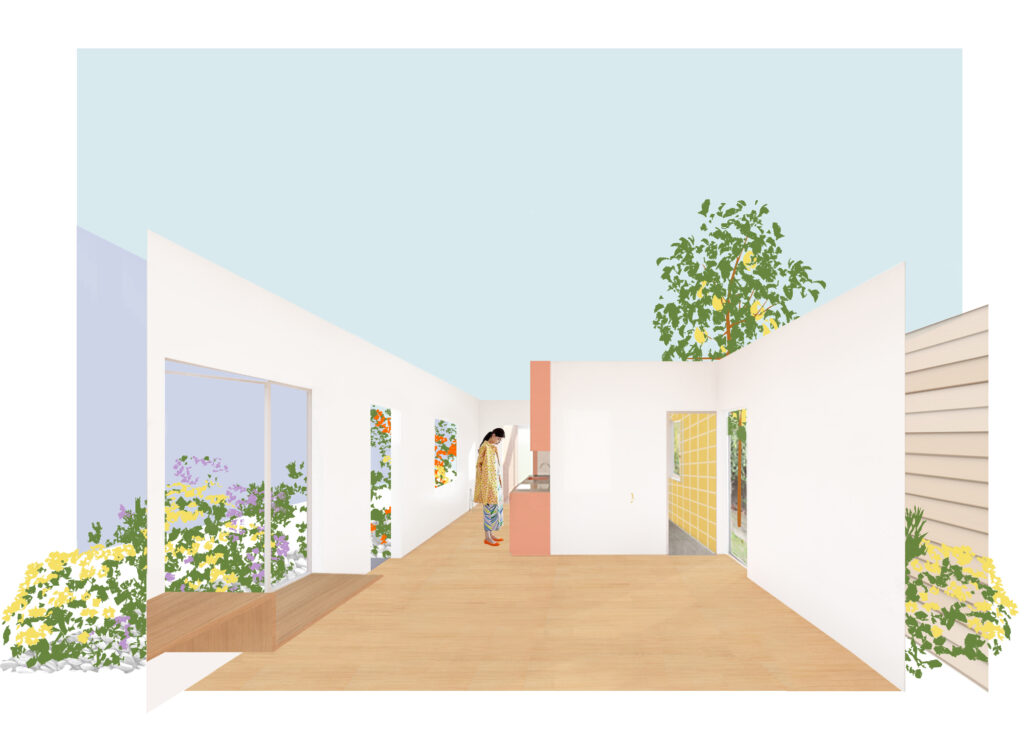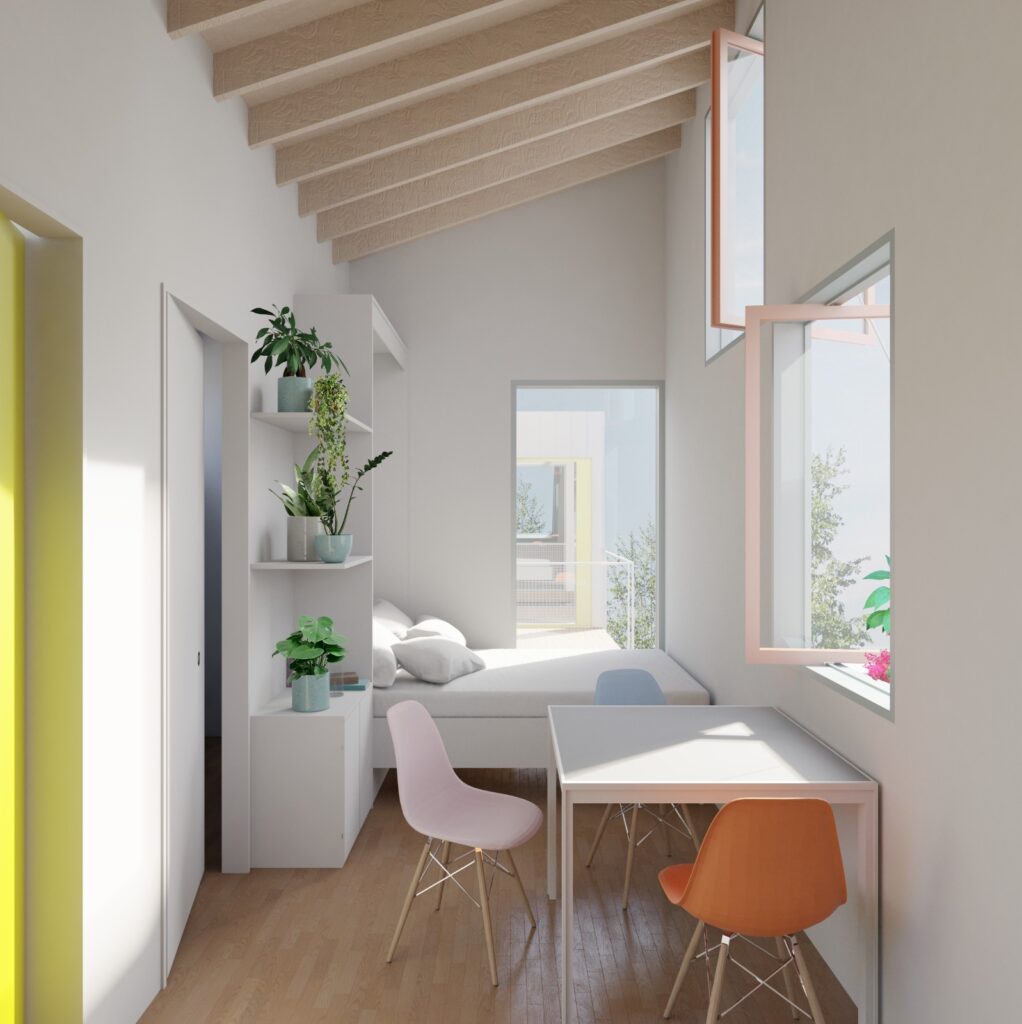

As urbanization intensifies, it’s imperative to reimagine living spaces that enhance our daily experiences while minimizing our ecological footprint. I delve into ethical urban design, emphasizing the potential of compact living to revolutionize city life, showing that small is not only beautiful but sustainable.
Intrigued by the ingenuity of small living spaces in Japan, I embarked on a journey to explore the concept of ‘miniaturization of architecture.’ In cities like Tokyo, an 18-square-meter apartment was considered a luxury due to the innovative use of space. This intrigue persisted upon moving to Paris and residing in a 23-square-meter apartment near Jardin des Plantes. Despite the compact living area, the minimalistic design allowed for a harmonious coexistence with the delightful garden. From Tokyo to Paris, I experienced the charm of compact living and recognized the potential it holds for a sustainable future.
Upon my move to Texas, I encountered vast houses consuming immense energy and resources, questioning their habitability and environmental impact. This sparked the birth of ‘HABITABLE,’ a name reflecting my vision of optimal and comfortable living spaces without excess.
I firmly believe that joyful micro-living, embracing proportion, views, angles, and elegance, can bring order and calm to our lives. “More in less” became my mantra, advocating for quality, comfort, health, and flexibility within a smaller footprint.

One notable project was the expansion and renovation of Casa FonJay by HABITABLE studio, showcasing the beauty and adaptability of small spaces. The design maximized space, integrating flexible elements, and emphasizing fluidity and connection with the outdoors.
In just 700 sq. ft, this home encapsulates the essence of my belief – proving that smaller spaces can offer quality living without compromising on comfort and elegance.
We made the most of the limited space while keeping the essence of the original shotgun house intact, focusing on the extensive use of sliding doors and strategic interior-exterior openings. These features not only enhance the flow of space but also integrate the living space with the beautiful small garden on the property.

Cities need ‘precise’ homes that consume fewer resources and optimize space to the maximum. Additionally, urban design can play a crucial role in offering enriching experiences, not just space. It is imperative to explore the ethical aspects of urban design, advocating for small-footprint living to enhance rich urban life.
Prioritizing designs that serve both people and the planet, it emphasizes sustainable urbanization, flexible designs, and meaningful experiences. The goal is to bridge the gap between individual living spaces and the surrounding urban landscape, seamlessly merging work and life.
Evolving family dynamics and a growing number of small households and people living alone call for a transformation in urban and architectural approaches. The focus should be on ecology, reducing waste and energy, and fostering more compact living. As we envision this shift, the words of the Team 10 resonate, emphasizing the inseparable connection between our homes and our cities—the change in one catalyzing a transformation in the other.
Esther Charlesworth‘s perspective emphasizes designing public urban spaces to honor diversity and ensure equal respect and dignity for every citizen. Co-living emerges as a sustainable solution, reducing carbon footprints and redefining community living.
Incorporating dignity as a central principle and integrating play as a critical activity can significantly enhance urban living. Embracing communal living, reducing waste and energy consumption, and prioritizing sustainability should be the focus of future urban and architectural approaches.
I advocate for living small to create a more significant ecological urban impact. I envision cities as better, more habitable places, where every resident enjoys their right to a fulfilling urban life. By embracing small living, we can make a big change in our cities and the world at large.

Houston, September 21, 2023

An amazing article.